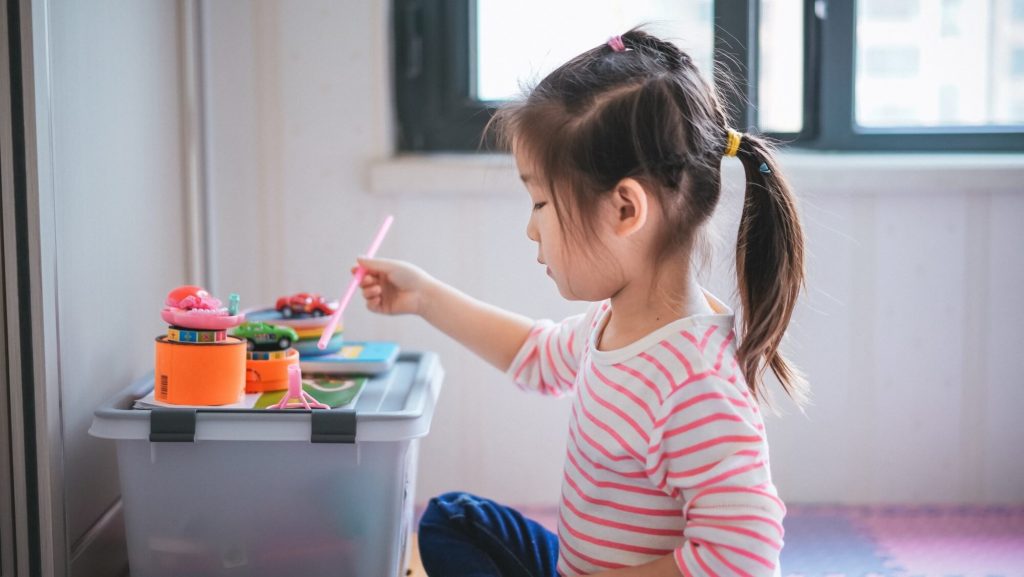4 ways to begin building Emotional Intelligence (EQ) in your child

There have been ongoing debates about which kind of intelligence is better. This has led to many, including psychologist Daniel Goleman, finding that EQ might be more important than IQ. Goleman has even suggested that humans have multiple types of intelligence, showing the significance of each strengths.
This is important to identify because ultimately, we are social beings, your kids need social interactions for their long-term growth and development. With EQ learnings, kids can recognise a change in body language, establish boundaries, grow confident in engaging with other kids, and even understand the importance of listening as well as processing information.
If you are looking to build your little one’s EQ, we have four simple ways to help you to start strengthening it.

1. Empathising and acknowledging your kid’s perspective
When someone tries to understand your situation and empathises with you it makes you feel appreciated and heard. Your human heart definitely feels lighter and all your worries slowly disappear.
This is the same for kids. When they store up emotions the logical thing to do is find a safe haven to let themselves experience it, it’s only natural. Nonetheless, empathising does not necessarily mean that you agree with whatever your goofball is doing, you’re just letting them know that you’re aware of their feelings.
Some examples of verbally acknowledging their emotions:
“You want me to be on your side all the time, don’t you?”
“You’re upset that it’s raining”
“You want to stay up like the big kids, I know”
By doing this, you are helping your kid reflect on their experience and learn to identify what triggers their feelings and slowly manage them. Essentially, children develop their sense of empathy by experiencing it from others.

2. Allow space for expression
We are all just humans born with emotions, the least we can do is to accept it.
Accept your child’s emotions rather than denying or minimising them. Otherwise, this can give the wrong impression that some feelings are insignificant, shameful, or unacceptable. Disapproving their expressions does not mean that they will immediately not feel things anymore, it will likely lead them to repress their emotions even more. They will feel trapped and will look for a way to escape which then becomes their unhealthy coping mechanism.
Instead, teach them that the spectrum of feelings is understandable and is part of being human.
“You’re mad at your brother who broke your toy, it’s okay to be mad BUT it’s never okay to hit even when you’re mad, tell your brother how you feel in words”
This will help your kids accept and become better at regulating their emotions without resolving to a physical fight. Your acceptance teaches your child that being emotional is not dangerous and shameful, in fact, it is a universal experience.

3. Listen to their feelings actively
As we all know, rage will not fade away until it is heard.
It does not matter what age your kids are. What they need you to do is listen and validate their emotional stress. You will be amazed at how cooperative and affectionate they become once they have the chance to tell you how they feel. To achieve this, you must be present and in tune with your active listening skills.
“You seem devasted about something? I am here if you want to talk about it, this is a safe space only for you and me”
The essence of human emotions exists for it to move through us, overwhelm us, then gradually fade away, and then this process repeats itself. This is why if we repress them, we will explode when it overloads. For children this comes in the form of massive tantrums. Hence, learn to listen and be present in it.

4. Practically teach them to problem solve
Our emotions are just messages that need to be decoded.
Find practical and effective ways to teach your child to feel things, tolerate them without the need to act on them. Once they are not at the hands of strong emotion then that is time to problem solve.
Once kids feel that they are understood and their feelings are accepted the emotions will begin to dissipate. Although at times, kids seem to need your help with brainstorming solutions, it is important to resist the urge to butt in and handle the problem unless asked to. Teach your kids to recognize their feelings as signals about the things that they need to handle differently in their lives.

Conclusion
Although this can also be challenging to do, consider the long-term benefits of teaching your child these skills while young. They will appreciate it as they grow up. The question is not to weigh which intelligence is better but to have a bit of a learning balance by recognising your little one’s strengths and improving them as they grow.
